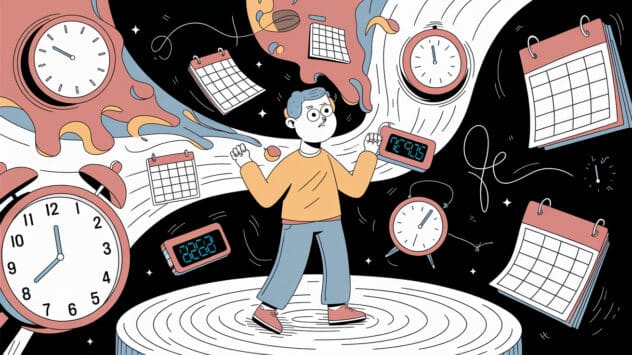Sound Therapy for Neurodivergence: A Symphony of Support.
Picture this. You’re lying down, headphones on, as soothing tones wash over you. Suddenly, your chaotic brain feels like it’s finally upgraded from a dial-up connection to fibre broadband. Sound therapy isn’t just for spa days or meditation virtuosos—it’s a game-changer for anyone looking to relax, focus, or manage emotions. But what about sound therapy for neurodivergence? That’s where things get really exciting.
Let’s dive into how sound therapy is helping neurodivergent individuals unlock their unique potential and why it’s making waves (pun intended) in the world of therapeutic practice.
What is Sound Therapy?
Sound therapy is like a warm hug for your brain. It uses sound, music, and vibrations to support mental, emotional, and physical well-being. And it’s not a one-trick pony—there are lots of ways to experience it:
Unlock peak brain performance with science-backed biohacks. Join free now & get your guide for just £4.99 (45% off)!

- Tuning Fork Therapy: Calibrated forks create vibrations that promote relaxation and balance. Think of it as your brain getting a quick tune-up. Please don’t use actual forks.
- Binaural Beats: Listen to slightly different tones in each ear to encourage brainwave patterns like alpha waves for relaxation or beta waves for focus. It’s like a workout for your brain, but without the sweat.
- Sound Baths: Imagine being wrapped in the soothing hum of singing bowls, gongs, and chimes. It’s less about bathing and more about soaking in sound.
- Music Therapy: Guided sessions with a trained therapist using music to help with goals like emotional expression or reducing stress.
Understanding Neurodivergence
Neurodivergence is a fancy way of saying that not all brains are wired the same—and thank goodness for that. It includes conditions like autism, ADHD, dyslexia, dyspraxia, and Tourette’s syndrome. Neurodivergent individuals often experience the world in unique ways, with heightened sensory sensitivities, creative thought patterns, and distinct emotional processing.
If every brain were a gadget, neurotypical brains might be reliable toasters. Neurodivergent brains? They’re the multi-tools. Versatile, brilliant, and always surprising.
Why Sound Therapy Works for Neurodivergence
Sound therapy for neurodivergence goes beyond relaxation. It taps into the sensory and emotional needs of neurodivergent individuals in ways that feel intuitive and accessible.
- Sensory Regulation: Many neurodivergent people experience sensory overload, where everything from bright lights to a ticking clock feels overwhelming. Gentle tones and rhythmic sounds can provide a consistent, soothing auditory environment. It’s like a sound sanctuary for the senses.
- Emotional Regulation: Sound interacts directly with the limbic system, the part of the brain that handles emotions. Neurodivergent individuals managing anxiety or intense feelings might find sound therapy as calming as curling up under a weighted blanket.
- Focus and Attention: For ADHD minds that bounce around like ping-pong balls, binaural beats can help train the brain to maintain focus. It’s like giving your brain a playlist for productivity.
- Self-Expression: Music therapy offers a creative outlet for emotions that might be hard to put into words. It’s like having a conversation, but with instruments instead of sentences.
- Non-Invasive and Adaptable: Sound therapy is gentle and can be tailored to individual preferences, making it accessible for all ages and abilities. Whether you love the hum of a gong or prefer binaural beats, there’s something for everyone.
Pairing Sound Therapy with Supplements and Exercise
While sound therapy supports relaxation and focus, supplements and exercise can complement its benefits:
- Magnesium: Known to promote calmness and reduce restlessness, magnesium can enhance the effects of sound therapy. Explore this gentle magnesium supplement for relaxation.
- Yoga or Gentle Movement: Combining sound therapy with yoga or stretching exercises can amplify its calming effects. These activities pair perfectly with soothing tones, helping to regulate the nervous system.
How to Get Started
Before diving headfirst into sound therapy, it’s important to approach it thoughtfully:
- Customisation is Key: Every neurodivergent individual has unique sensory needs. Working with a therapist ensures the experience is tailored for maximum benefit.
- Start Small: If auditory sensitivities are an issue, begin with short, gentle sessions to avoid overwhelm.
- Combine with Other Supports: Sound therapy is a powerful tool but works best as part of a holistic approach to well-being.
A Path to Greater Well-being
Sound therapy for neurodivergence offers a refreshing approach to sensory and emotional balance. Whether it’s the hum of a singing bowl or the targeted goals of music therapy, this practice provides tools for self-expression and self-regulation.
As research continues to explore the profound connection between sound and the brain, the potential for neurodivergent individuals to thrive using sound therapy only grows. For now, it’s a beautiful reminder that sometimes the simplest tools—like sound—can make the biggest impact.
Join Our Community
Want to explore sound therapy, neurodivergence, or ways to support well-being? Join our community to connect with others, ask questions, and discover tools to help neurodivergent individuals thrive.







